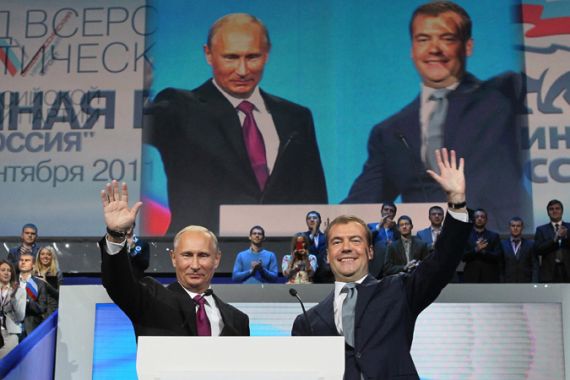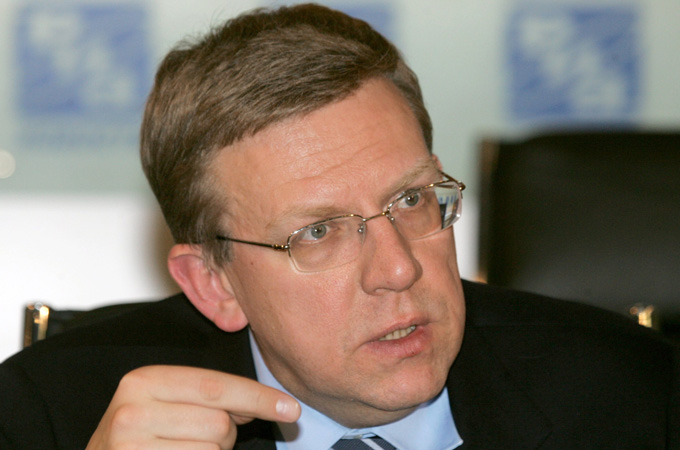Officials to quit over Medvedev-Putin switch
Finance minister and chief economic adviser vow to resign if President Medvedev and PM Putin swap jobs as expected.

 |
| Alexei Kudrin said he will step down if Dmitry Medvedev and Vladimir Putin swap jobs [Reuters] |
As Russia prepares for Vladimir Putin’s possible return to the Kremlin in the 2012 elections, two of his top officials dramatically broke ranks because of his plan for a third presidential term.
Alexei Kudrin and Arkady Dvorkovich, the country’s finance minister and chief economics adviser, declared they had no intention of serving in any future government if current president Dmitry Medvedev swaps posts with Prime Minister Putin.
“There is no cause for joy,” said Dvorkovich, who had publicly urged Medvedev to stand for a second term.
Kudrin, who has been finance minister since 2000, said that he “unconditionally refused” to be in the next government and revealed for the first time that he had major policy differences with the incumbent president.
“I do not see myself in the new government. It’s not just that nobody offered me anything. I think that the differences that I have will not allow me to be in this government,” Russian news agencies quoted Kudrin as saying.
Around 300 people from the liberal opposition party turned out in central Moscow to protest Putin’s re-election bid. “Putin Must Go!” and “your elections are a farce!” read some of the banners at the government-sanctioned rally.
‘Castling’
President Medvedev, who took over the Kremlin from Putin in 2008, announced on Saturday that he would step aside for the incumbent prime minister after March 2012 polls.
The job swap could allow Putin to extend his rule as far as 2024 while Medvedev can press on with his trademark programme of modernisation as head of government.
The polls repeatedly show that Putin remains by far Russia’s most popular politician.
As the United Russia party’s candidate, Putin is almost certain to win the country’s top job in the March elections due to the fractured state of the Russian opposition and the Kremlin’s control over the media.
Russian state media have dubbed the job swap “castling”, after the move in chess where the rook changes position with the king.
Under constitutional changes pushed forward by Medvedev and which many long suspected were aimed at further strengthening Putin, the new president will have a six-year mandate rather than four years as before.
If Putin again serves the two maximum consecutive terms, he could stay in power until 2024, by which time he would be 72 and the longest-serving Moscow leader since Joseph Stalin.